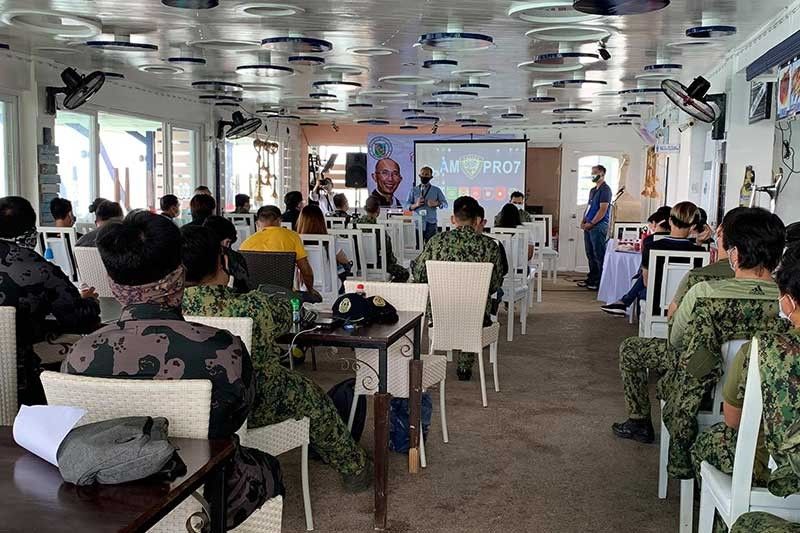As country revives economy: Unity key in war vs COVID-19

CEBU, Philippines — Unity in effort and leadership are key to fighting the coronavirus disease as the country moves to loosen up restrictions to revive the economy under the National Action Plan - Phase 2.
“Our local leaders should be with us together with the private sector so kailangan po na magkaisa tayo po,” said Secretary Carlito Galvez, Jr., chief implementer of the country’s COVID-19 efforts in a briefing with President Rodrigo Duterte Tuesday night.
(Our local leaders should be with us together with the private sector so we need to be united.)
He cited the case in Cebu City, which reportedly affected the implementation of policies during the first phase of the quarantine.
“Minsan po, pag hindi nagkakaroon ng pagkakaisa tulad po ng nangyari sa Cebu, nagkaroon po ng hidwaan sa politika, talaga pong hindi sumusunod ang mga tao,” Galvez said.
(Sometimes, when there is disunity like what happened in Cebu because of political differences, people will not follow.)
In contrast, he enumerated the places that stood out during Phase 1 of the country’s anti-COVID 19 efforts.
“During the Phase 1 of our campaign, we have seen that the areas with unity of command and unity of effort, we were able to manage and contain the spread of COVID-19. We have models like Davao, Davao City, CAR, CARAGA and the NCR, Regions 6, 8, 1 and 2,” Galvez said.
Earlier, Dr. Ted Herbosa, special adviser to the National Task Force on COVID-19, also cited weak leadership and governance as among the factors that hampered the implementation of good quarantine measures in the city.
Cebu City was reverted to enhanced community quarantine (ECQ) from July 1 to 15.
Situations
For instance, while Cebu City Mayor Labella and Vice-mayor Michael Rama are under one party, Rama did not hold back in expressing his disappointment over the supposed slow action of the executive in facing the local crisis.
The City Council, which Rama presides, also sought a meeting with Labella in several occasions but to no avail.
Adding to the trouble in Cebu City were some of the Mayor’s Information and Liaison Officers (MILO) who were at odds with barangay captains. Several barangay officials have expressed disappointment after being blamed for lack of quarantine passes and food relief, matters that were handled by MILO.
Even Secretary Michael Dino of the Office of the Presidential Assistant for the Visayas, was not spared from controversy when some individuals called for his resignation. After Dino said he will continue to work as long as he has the trust of the president, an online petition was launched to ask for his replacement.
Dino sought refuge with the police in tracking down those behind the online petition and those who threw accusations against him.
Optimistic
After the national government supplemented local efforts in implementing the ECQ, Secretary Roy Cimatu is optimistic that Cebu City can transition to general community quarantine (GCQ) come July 16.
Duterte assigned Cimatu to oversee the implementation of ECQ in the city.
Cimatu's deputy chief implementer, Ret. General Mel Feliciano, is also seeing positive results.
“Nakikita natin ngayon na maganda naman ang resulta. Sumusunod na ngayon ang mga tao. Na-educate na mga tao, though paminsan-minsan may nagba-violate pa rin na mga tao, they are dealt with accordingly. Mabilis naman nag-react ang ating mga kapulisan,” Feliciano said.
(We’re seeing positive results. The people follow and have been educated. While there are violators from time to time, they are dealt with accordingly. Our policemen acted swiftly.)
Should Cebu City eventually move to GCQ, Feliciano said there will still be granular lockdowns and personnel of the Special Action Force (SAF) will remain.
Baguio City Mayor Benjamin Magalong also brought a team to Cebu City to help train contact tracers and share the best practices that helped Baguio and the Cordillera region contain the spread of the virus.
IATF-EID also convened barangay captains in Cebu City recently to present to them a proposed Barangay Referral System, which aims to strengthen their capacity to identify COVID-19 cases.
During a virtual teleconference, Feliciano asked the barangay leaders to provide recommendations based on their experiences on the ground. He said the captains’ inputs will be used to improve the referral system further, which can be tailored-fit to the needs of barangays and allow them to identify COVID cases faster and more efficiently.
"There is no perfect plan. Although experts were consulted on this plan, I encourage all of you to make this a better one. Your views are very important on this matter," Feliciano said.
The proposed referral system features a step-by-step guide on where to refer suspected COVID cases. It is designed to make the work of barangay officials and other emergency responders easier.
This initiative is part of Feliciano's aim of transforming Cebu City's Emergency Operations Center (EOC) into a proactive response mechanism that will strengthen the city’s capacity to combat the disease.
Cooperation
Galvez said people’s compliance and vigilance to minimum health standards is more important now in the second phase of the action plan.
The IATF is heeding Duterte’s call to concentrate on prevention, “to save more lives and save the country’s critical resources.” JMO (FREEMAN)
- Latest





















